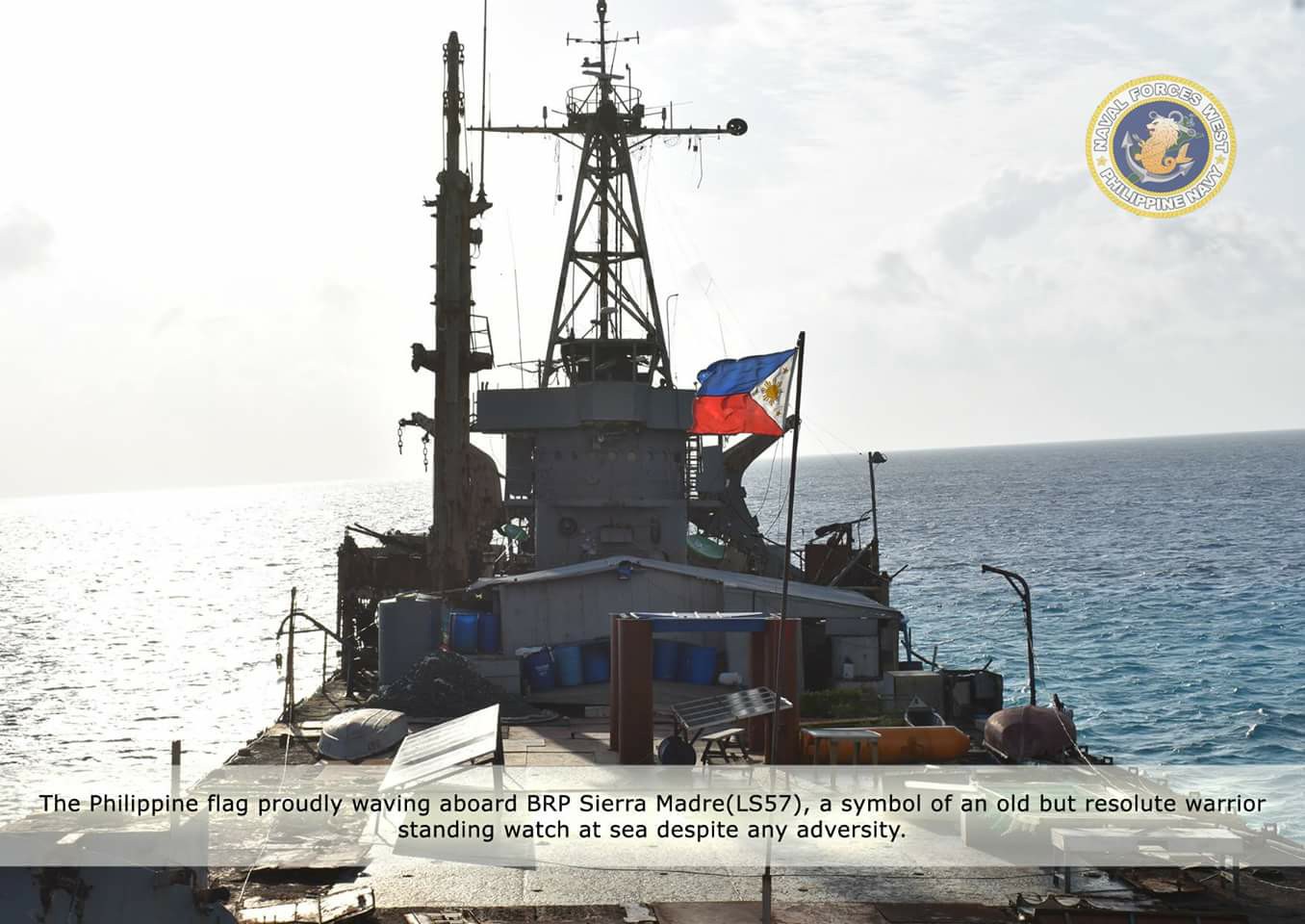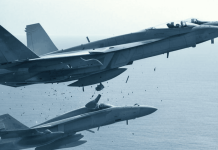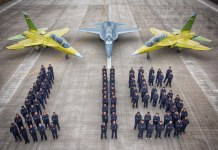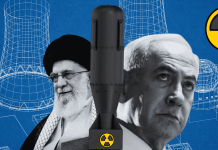The Philippines has denied allegations leveled by the Chinese state media that Filipino troops pointed guns at the Chinese Coast Guard (CCG) personnel as the latter started a confrontation at the Second Thomas Shoal in the South China Sea.
The Chinese state broadcaster recently reported an incident involving Filipino troops aboard the BRP Sierra Madre warship and the CCG. It said that the Filipino soldiers trained their guns on the Chinese. The claims were accompanied by a brief video footage that sought to establish the allegations.
According to a social media post by China Central Television (CCTV), firearms were on deck, and the crew members pointed them towards the Chinese Coast Guard near the Second Thomas Shoal. The 29-second video accompanying it showed a masked man holding up a blurry, dark object that looked like a weapon.
However, in a fierce rebuttal, the Armed Forces of the Philippines have denied the allegations. According to the Armed Forces of the Philippines, while the Chinese coast guard boats approached the Philippine-stationed warship on the disputed South China Sea shoal, the Filipino soldiers did not point any arms at them.
The Chief of Staff of the armed forces of the Philippines, Romeo Brawner, refuted the claims, saying, “It was just in preparation for self-defense in case something happens because they were very close.” He described the maneuvers conducted by the CCG on May 19 as provocative.
READ | Statement of the Armed Forces of the Philippines on the Alleged Gun-pointing Incident at BRP Sierra Madre.#AFPyoucanTRUST#OneAFPOnePhilippines#StrongAFPStrongPhilippines pic.twitter.com/Wk0WJOUkxo
— Armed Forces of the Philippines (@TeamAFP) June 4, 2024
In an official statement, which was also posted on social media, Brawner said, “Our personnel are governed by the rules of engagement (ROE) and acted with the highest level of professionalism, restraint, and discipline in the performance of their mission to safeguard our sovereignty and sovereign rights.”
The statement instead lambasted Chinese actions, saying, “Foreign vessels that venture dangerously close to our military vessel and violation of safe distance protocols necessitate heightened vigilance and alertness from our personnel. Hence, our troops were seen on guard because of the CCG’s provocative presence near BRP Sierra Madre.”
The BRP Sierre Madre is a World War-era warship deliberately run aground in the disputed region. The warship currently hosts Filipino soldiers and operates as a military outpost of the country in the disputed waters. In the last several months, CCG vessels have attempted to derail missions to resupply the ship.
Filipino authorities claimed Chinese rigid hull inflatable boats reportedly approached the BRP Sierra Madre within five to ten meters and took a part of the supplies that were air-dropped for the troops. They described these acts as “illegal” and “unacceptable”.
Video released by PH military shows Chinese coast guard personnel in rigid hull inflatable boats rushing to pick up airdropped food supplies meant for PH troops at 🇵🇭 BRP Sierra Madre in Ayungin (Second Thomas) Shoalhttps://t.co/vGEPVWXKOh pic.twitter.com/koJv2ZmkZJ
— Frances Mangosing 🇵🇭 (@FMangosingINQ) June 4, 2024
“This was a cause of alarm. So our soldiers, as a precautionary measure, held on to their firearms. It is part of the rules of engagement,” Brawner said. “We are denying that any of our soldiers pointed their guns deliberately at any of the Chinese … But we will not deny the fact that they were armed,” Brawner said.
Earlier, an unnamed Filipino official said CCG seized and dumped food and other supplies meant for Filipino troops stationed at the remote outpost in the Second Thomas Shoal on May 19. A CCG ship also allegedly blocked the medical evacuation of sick soldiers in another incident that happened at the same location and on the same day.
China claims nearly the whole South China Sea, including the Second Thomas Shoal. To patrol the contentious waterway, it has sent hundreds of vessels, including what Manila calls “Chinese maritime militia,” which it claimed were still in place on May 19.
Over the past year, tensions and the frequency of confrontations between China and the Philippines in the South China Sea have increased. Manila has accused China of ramming Philippine vessels. Also, China’s Coast Guard has used water cannons. There is a growing concern that these confrontations could escalate into a larger conflict and result in war.
Philippines Warns China
In a speech at the Shangri La Dialogue (the International Institute for Strategic Studies Shangri-La Dialogue in Singapore, is Asia’s premier defense summit from May 31 – June 2) that China’s defense minister attended, Philippine President Ferdinand Marcos Jr. made a barely concealed allusion to Beijing when he denounced what he described as aggressive, coercive, and illegal actions in the South China Sea that were undermining Southeast Asian nations’ aspirations for “peace, stability, and prosperity” in the region.
Philippine President Marcos Jr. had warned China not to cross the red line in the South China Sea, where tensions between the two nations were still rising.
A member of the audience questioned the president of the Philippines about whether a “red line” would be crossed if a Filipino sailor was killed by the Chinese Coast Guard ship. In recent months, these ships have often used water cannons on Philippine vessels.
“If a Filipino citizen is killed by a willful act, that is, I think, very, very close to what we define as an act of war, and therefore, we will respond accordingly,” he replied. “And our treaty partners, I believe, also hold that same standard,” he added.

Marcos mentioned the tense skirmishes with Chinese coast guard vessels, “We already have suffered injury. But thank God we have not yet gotten to the point where any of our participants, civilian or otherwise, have been killed.”
However, once the Philippines reached that point—a fatality—China would have undoubtedly crossed the Rubicon. That line—is it red? It will most likely be a red line, he stated.
Speaking in Singapore, Marcos Jr. was surrounded by world defense leaders, including Lloyd Austin of the US. Marcos emphasized that the United States maintained its strong focus on the region and emphasized that the security of the US was intricately linked to the security of Asia.
- Contact the author at sakshi.tiwari9555 (at) gmail.com
- Follow EurAsian Times on Google News




